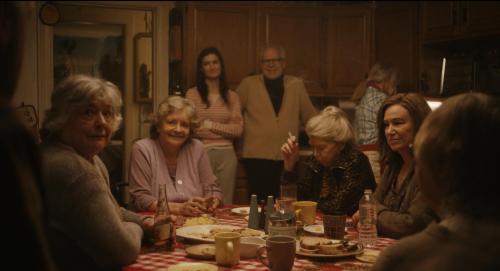#kent jones
“That’s the great paradox. To know what you love, to know what you want to extend and transmit to the world because something has been transmitted to you through art and created a spark, is to know loneliness and real solitude, because no one else can share it. But it is also to know the deepest love for those around you and the world they’ve created. To become attuned to art is to become attuned to the pure sensation of being alive, because you are seeing it embodied in all its mystery.”
— Filmmaker Kent Jones on forgiveness in the work of Martin Scorsese from our Fall 2019 issue.
Read it here.
Post link
“There is a unique and heartening thrill in watching an actor often shunted to the sidelines of films and TV shows finally obtain the spotlight she has been denied throughout her career. Such is the sensation of watching Mary Kay Place in Kent Jones’ Diane, a portrait of a worn out Massachusetts woman whose enduring sense of charity mirrors Place’s characteristic generosity as a performer who has tirelessly aided her fellow actors in countless projects, on the big screen and small, for over 40 years. Place’s Diane is the unwavering focus of the drama that bears her name, an emotional and psychological pilgrimage through the final winters of an aging, self-punishing caregiver prone to attending to everyone’s needs but her own. There is little flash to Place’s performance, which is consonant with Diane’s shrinking persona, the determined, tight-lipped, head-down reticence that only collapses when in the presence of her adult son (Jake Lacy), a hopeless addict whose irresponsibility enrages Diane to no end. Even when Diane reaches the end of her rope in these squabbles or in another quick-tempered quarrel with an insensitive volunteer at her local soup kitchen, Place never implores the audience for easy, uncomplicated sympathy; instead, she earns our rapt consideration by standing steadfast in the honesty of her minimalism, a mark of both her professionalism and her artistry. The actress is assured enough in her ability to touch upon a vast reserve of life experience to illuminate Diane’s inward struggle. She doesn’t strain for the teary, self-serving catharsis that would diminish the quiet desperation of the character’s circumstances, which Place seems to feel from the inside and exquisitely personifies with endless variations on exhaustion, agitation, and insuperable soul-sickness. By staying true to Diane, Place ensures that we are with the character every step of the way and gives depth to the type of woman who may move unknown through our daily lives but is far from unknowable.
Jones’ film makes room for plenty of splendid, underused veterans in addition to Place, among them Andrea Martin, Estelle Parsons, Phyllis Somerville, and, best of all, Deirdre O’Connell, a superb actor of stage and screen who usually resides even further on the margins of her projects than Place does in hers. O’Connell, a ringer who has been called upon many times to complement thankless parts, absolutely nails her small but significant role as Donna, Diane’s dying cousin, who has forgiven but not forgotten a betrayal in their shared past and refuses to flatter Diane in her final days. Delivering her entire performance from a hospital sickbed, O’Connell conveys tough wisdom with an authoritative whisper and the uncanny ease of someone made acutely aware that time is no longer on her side. When the character slips away, O’Connell’s powerful, straight-talking integrity, a force that supersedes her mortal frailty, weighs heavily over the film that follows, a phantom presence impossible to leave behind. In just a few scenes, the actress imparts the unmistakable and unfading impression of a life actually lived and lost.” —Matthew Eng
The 12 Best Female Film Performances of Early 2019
(Source:TribecaFilm.com)
Post link







